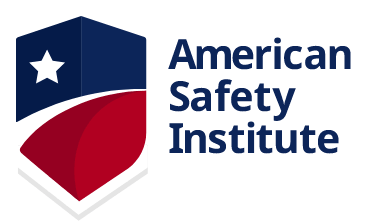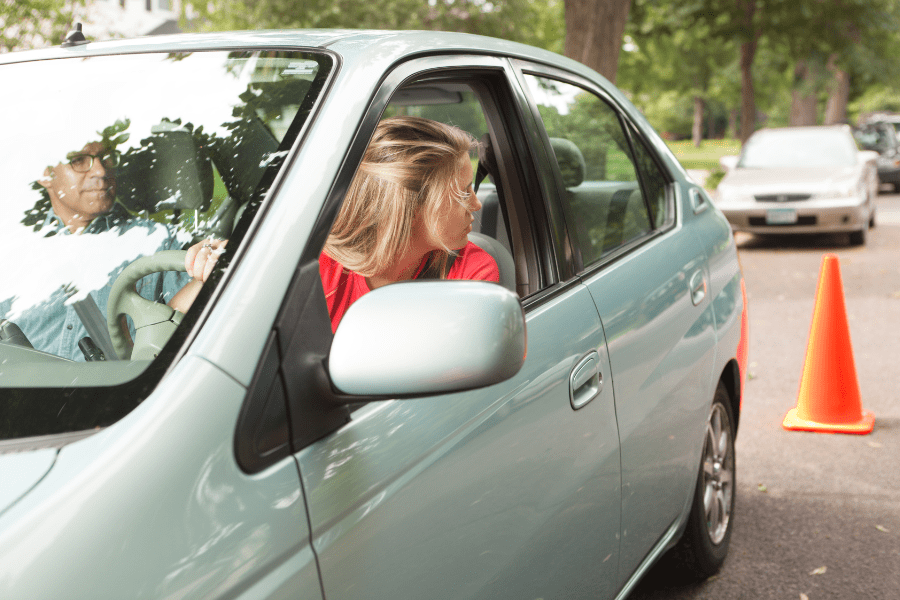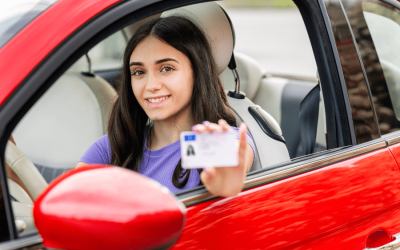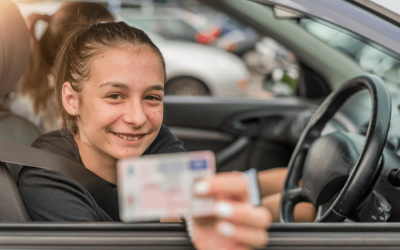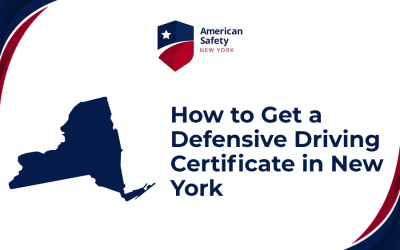If you’re dealing with Florida driver’s education or traffic school, two acronyms will come up constantly: TLSAE (Traffic Law and Substance Abuse Education) and BDI (Basic Driver Improvement). They sound similar, but they serve very different purposes. This guide breaks down what each course is, who needs it, when it’s required, and how to choose the right one for your situation — including online options from approved providers like us at American Safety Institute (ASI).
Quick Summary (if you just want the short answer)
- TLSAE (for drivers over the age of 18): Required for first-time adult drivers as part of licensing. It’s a 4-hour course covering Florida traffic law, impaired driving risks, and substance abuse. If you’re over 18 and getting your Florida learner’s permit or first license, TLSAE is usually the course you need.
- BDI: Taken by drivers who received a traffic citation and want to avoid points or comply with a court order. Also 4 hours, but it’s not the same as the first-time driver TLSAE requirement.
What is TLSAE (Traffic Law and Substance Abuse Education) for Drivers Over 18?
TLSAE is the state-approved 4-hour course that teaches Florida traffic law, impaired driving risks, and substance-abuse issues relevant to driving. For Florida drivers age 18 and older, TLSAE is the mandatory educational component for first-time license applicants and for certain reinstatement situations. Course completion is reported electronically to the Florida Department of Highway Safety and Motor Vehicles (FLHSMV).
If you’re an adult first-time driver, you can conveniently complete this requirement online with the Florida 4-hour TLSAE course from ASI. This DHSMV-approved course is available 24/7 and allows you to study at your own pace.
Note: Florida’s rules for teen driver education have evolved recently — for example, new statutory changes in 2025 expanded driver education requirements for minors. TLSAE specifically applies to first-time adult drivers (18+). Always check the FLHSMV pages or your county licensing office for precise requirements.
What is BDI (Basic Driver Improvement)?
Basic Driver Improvement (BDI) — often called traffic school — is the 4-hour class drivers take after receiving certain traffic citations to prevent points from being added to their license or to comply with a court order. Drivers electing BDI must usually complete it within a specific time window and follow instructions from the clerk of court, including paying any election fees. Some courts also mandate BDI for specific convictions.
You can also complete BDI online with an approved provider like ASI via the 4-hour Basic Driver Improvement course.
Key Legal Differences (Florida Law & FLHSMV)
Purpose:
- TLSAE (18+): Licensing education for first-time adult drivers (and certain reinstatements)
- BDI: Post-citation education to avoid points or satisfy court order
When to Take:
- TLSAE (18+): Before obtaining your license (or as part of reinstatement)
- BDI: After receiving a qualifying traffic citation
Mandated By:
- TLSAE (18+): Licensing statutes and FLHSMV rules (see §322.095)
- BDI: Statutes related to traffic citations and point assessments (e.g., §318.14)
Real-World Examples — Which One Do You Need?
- You’re 18+ and applying for your first Florida license: Take TLSAE (18+). Completion is recorded with FLHSMV.
- You’re 16 and getting your learner’s permit: TLSAE doesn’t apply; minors must follow the expanded 2025 driver education requirements.
- You received a speeding ticket and want to keep points off your license: Elect BDI, following court deadlines and instructions.
- Court-ordered traffic school: Take whichever course the court specifies (often BDI).
Practical Differences Drivers Should Know
- Insurance Implications: BDI can prevent points and insurance rate increases. TLSAE (18+) is for licensing education only.
- Timing & Paperwork: TLSAE completion is submitted electronically to FLHSMV by the provider. BDI requires election with the clerk and proof of completion.
- Who Can Take Them: TLSAE is for first-time drivers 18+ (and certain reinstatements). BDI is for drivers with qualifying citations or court orders.
FAQ — Fast Answers
- Can TLSAE remove points from my ticket? TLSAE is for licensing. BDI is the relevant course to avoid points.
- Is TLSAE always 4 hours? Yes — with small allowances for breaks. Completion is electronically reported to FLHSMV.
- Can I take BDI online? Yes, many FLHSMV-approved providers, including ASI, offer the 4-hour BDI online.
- I’m under 18 — what should I take? TLSAE does not apply. Minors follow new 2025 driver education rules.
Take Either Course with ASI Today
Understanding the difference between TLSAE and BDI is crucial to making sure you meet Florida’s requirements and avoid unnecessary penalties. TLSAE is for first-time adult drivers and certain reinstatements, while BDI is designed for drivers dealing with traffic citations or court orders.
No matter which course you need, ASI makes it easy to complete both online, at your own pace, and fully approved by FLHSMV.
- Enroll in the 4-hour TLSAE first-time driver course
- Enroll in the 4-hour Basic Driver Improvement course
Take the right course today, meet all Florida requirements, and get back on the road safely and legally!
